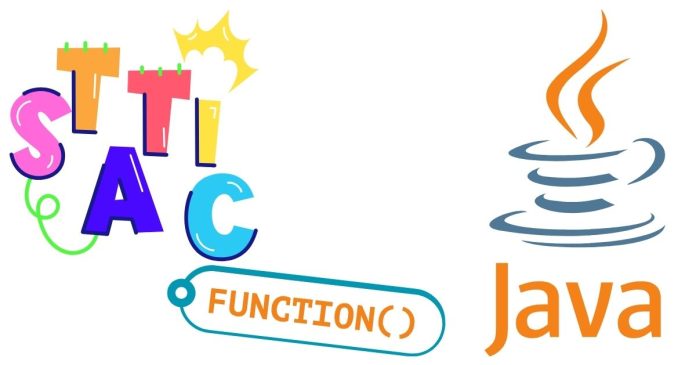In Java, a static function (or static method) is a method that belongs to the class rather than any specific instance of the class. Static functions can be called directly using the class name without creating an object of the class. They are often used for utility or helper methods and are shared among all instances of the class.
Key Features of Static Functions
- Belongs to the Class
A static function is associated with the class itself rather than any object. It can be accessed using the class name, likeClassName.methodName(). - Shared by All Instances
Since static functions belong to the class, they are shared among all instances of that class, making them ideal for tasks that do not depend on instance-specific data. - Cannot Access Non-Static Members Directly
A static function cannot directly access instance variables or instance methods because it is not tied to any specific object. However, it can access other static variables or methods. - Called Without an Object
You can call a static function directly using the class name, without needing to create an object of the class.
Syntax of a Static Function
To declare a static function in Java, use the static keyword in the method signature:
class Example {
// Static method
static void displayMessage() {
System.out.println("This is a static function!");
}
}
public class Main {
public static void main(String[] args) {
// Calling the static method using the class name
Example.displayMessage();
}
}
Examples of Static Functions
- Utility or Helper Methods
Static functions are commonly used for utility methods like mathematical calculations or string operations.class MathUtils { // Static method to calculate square static int square(int number) { return number * number; } } public class Main { public static void main(String[] args) { int result = MathUtils.square(5); // No need to create an object System.out.println("Square of 5 is: " + result); } } - Main Method
Themainmethod in Java is also static because it is the entry point of the program and must be accessible without creating an object of the class.public class Main { public static void main(String[] args) { System.out.println("Hello, World!"); } } - Static Variables and Methods Together
Static functions can work with static variables:class Counter { static int count = 0; // Static variable // Static method static void increment() { count++; } } public class Main { public static void main(String[] args) { Counter.increment(); Counter.increment(); System.out.println("Count: " + Counter.count); // Output: Count: 2 } }
Limitations of Static Functions
- Cannot Use
thisorsuperKeywords
Since static functions are not tied to any object, they cannot use thethisorsuperkeywords. - No Direct Access to Instance Members
Static functions cannot directly access non-static (instance) variables or methods. To access them, you must create an instance of the class.class Example { int instanceVar = 10; // Non-static variable static void display() { // This will cause an error // System.out.println(instanceVar); } } - Not Suitable for Instance-Specific Behavior
If a method depends on specific data of an object, it should not be static.
When to Use Static Functions
- Utility Methods: For tasks like calculations, string manipulations, or other operations that do not depend on instance data.
- Constants: To define constants and their related logic.
- Factory Methods: To create objects in certain design patterns (e.g., Singleton).
- Global Counters or Flags: To maintain global state or configuration.
Static functions in Java are a powerful feature that provides flexibility for designing utility methods and shared functionality. While they are useful in many scenarios, it’s essential to use them appropriately. If a method does not rely on instance-specific data, making it static can improve efficiency and clarity in your code. However, for methods that require access to instance variables or are tied to object behavior, non-static methods are a better choice.


